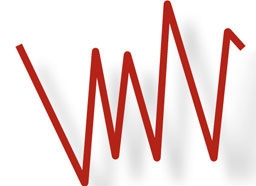Mnuchin thinks there's a simple reason the Dow is poised for its worst December since 1931

Treasury Secretary Steven Mnuchin has weighed and measured the recent destruction that put the Dow Jones Industrial Average on track for its worst December since 1931, and he appears to have drawn his own conclusions as to the impetus.
Mnuchin during a Tuesday interview with Bloomberg News in Washington said that the effect of the financial-crisis-era Volcker rule and high-frequency trading have combined to sap liquidity in the market and insert an unprecedented measure of volatility in assets.
'In my opinion, market structure has led to a lot more volatility. Part of this is a combination of the market presence of high-frequency traders combined with the Volcker rule.' Treasury Secretary Steven Mnuchin
The Volcker rule refers to the controversial standards put in place to prohibit banks from trading for their own accounts, in the wake of the 2007-09 financial crisis, while high-frequency trading refers to superpowered computers engineered to execute transactions at lightning-quick speeds, which has become arguably the dominant force in the market over the years since its advent.
Back-to-back declines of more than 500 points in the Dow, beginning Friday, pushed the blue-chip benchmark deeper into correction territory, usually defined as a drop of at least 10% from a recent peak.
In fact, if the Dow were to finish the month at its current level, down about 7%, it would mark the worst December since 1931, when it fell 17.01%, according to Dow Jones Market Data.
Meanwhile, the S&P 500 and the Nasdaq Composite are on pace for the worst start for any December since 2008, largely on the back of fears about sluggish global economic expansion, trade tensions between Beijing and Washington, and a Federal Reserve that is apparently set this week to lift borrowing costs for a fourth time in 2018. Those factors have further unnerved investors who had already grown accustomed to easy-money policies and are now fearful that the central bank may be too eager to reset rates closer to normal historical levels.
On Tuesday, the stock benchmarks managed narrow gains.
To be sure, Mnuchin isn't the only one to peg Wall Street's spate of volatility to market structure. Fed Gov. Lael Brainard in a speech earlier this month said computer-driven trading in the Treasury market may also be fueling erratic swings, sometimes referred to as flash crashes. Brainard, in contrast to President Donald Trump's Treasury secretary, said the post-crisis banking laws have not contributed to liquidity problems.
Mnuchin's comments came with Trump having squarely - and repeatedly - placed blame for the swift retrenchment in markets on the shoulders of Federal Reserve Chairman Jerome Powell, whom the president has accused of undermining his efforts to bolster economic growth. (Trump chose Powell over incumbent Fed chair Janet Yellen in 2017.)
A rate increase on Wednesday is anticipated, but a number of market pundits have cautioned that if the central bank becomes too aggressive in the pace of its rate increases, it could derail the stock market and thrust the economy into recession.
From MarketWatch
